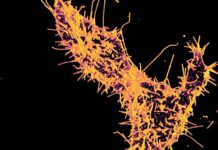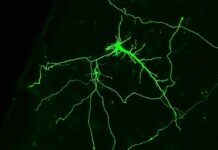Introduction: Decoding Cancer Recurrence Risk
Groundbreaking research by Yasser Riazalhosseini and a team of geneticists from McGill University has discovered a potential mutational signature that could serve as an indicator of the risk of kidney cancer recurrence. By decoding the DNA sequencing of tumors removed from 943 people with clear-cell renal cell carcinoma (ccRCC), the mutations that predict kidney cancer recurrence can be identified. This could help low-risk patients avoid unnecessary treatment while enabling high-risk patients to receive the necessary care.
Study Methodology: The Genetic Hunt for Recurrence Risk
The researchers identified mutations in 12 genes that are linked to ccRCC and sequenced the DNA of tumors removed from the patients. The patients’ outcomes were then tracked for the next five years. The team’s main focus was on the mutation in a tumor suppressor gene called von Hippel-Lindau (VHL) that was present in all the patients.
Study Results: The Impact of Mutations on Recurrence Risk
The study revealed that patients who only carried a mutation in VHL had a significantly lower risk of cancer recurrence compared to those with additional mutations. Specifically, 91% of patients who only had a mutation in VHL remained cancer-free five years after surgery. This number dropped to 80% in patients with one additional mutation in a ccRCC-linked gene and further decreased to 51% in individuals with two extra mutations. This data suggests that patients with two or more mutations are at high risk of recurrence and would benefit from adjuvant therapy.
Impact of the Study: Towards Precision Medicine for Kidney Cancer Patients
The findings from this study could potentially revolutionize the way clinicians approach kidney cancer treatment. Traditionally, clinicians have relied on tumor grade and histological analysis to identify patients at high risk of recurrence. However, this study provides a more precise and personalized approach to predicting cancer recurrence risk. The findings could help low-risk patients avoid unnecessary and potentially toxic immunotherapy, while high-risk patients can receive the necessary care to manage their disease.
Conclusion: A Promising Step Forward in the Fight Against Kidney Cancer
The mutational signature discovered in this study has significant implications for kidney cancer patients, providing a new way to predict cancer recurrence risk. However, further studies are needed to validate the results in a larger cohort of high-risk patients undergoing further therapy. With continued research, this study could lead to a more personalized approach to kidney cancer treatment, improving patient outcomes and quality of life.
Google News | Telegram
















